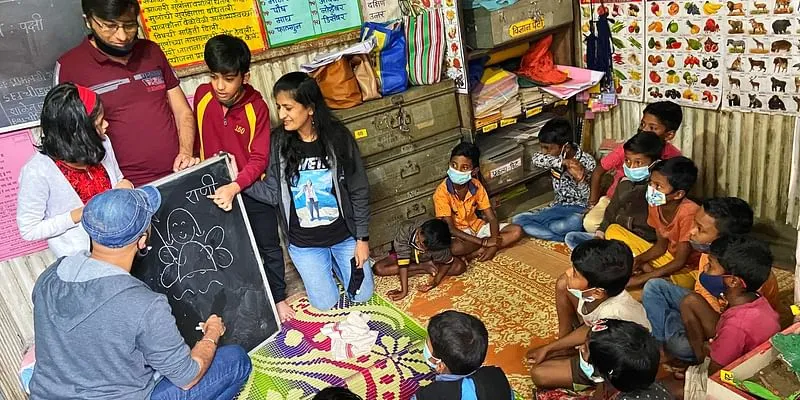Good deeds: How Icertis encourages its workforce to volunteer for social work
In early 2020, Icertis launched the ‘Seven Days of Humanity’ initiative, where it started granting employees a week of paid time off each year to volunteer for a cause or organisation of their choice.
SaaS company believes in the importance of giving back to the communities “where we live, work, and play.”
Last year, the US-based company doubled down on its commitment to take care of its communities amidst the COVID-19 pandemic and the protests over racial discrimination in the US.
While Icertis initially focused on supporting vulnerable communities around, it soon realised that it was not enough.
In early 2020, it launched the ‘Seven Days of Humanity’ initiative, where it granted Icertis’ employees (also known as "Icertians”) a week of paid time off (PTO) each year to volunteer for a cause or organisation of their choice.
This volunteer time is in support of anti-racism activities, and Icertians at every level have used the benefit to volunteer, support, help, give, and protest.

Icertians helping children
Working for causes
“Samir Bodas, my co-founder, and I have been actively participating in the community for a long time. We know the power of giving back to society — personally and professionally — and the purpose of this company is very important, especially in today’s time,” Monish Darda, Co-founder and CTO, Icertis, tells SocialStory.
Amidst fighting against COVID-19, when several racial discrimination incidents broke out in the US, it moved the whole country. And Samir and Monish wanted to contribute in some way and participated in anti-racism rallies and protests. However, they both knew they wanted to take bigger risks and do bigger things.
“It made a great impact on us — the whole experience. We thought, “How do we allow Icertians to do this (social work) without them thinking about their job at hand? A lot of Icertians do this. So let's give them a proper channel to do it,” Monish says.
At first, Icertis granted paid leaves to anyone who participated in the Black Lives Matter (BLM). Slowly, the duo scaled it globally to include more causes. In fact, it left it to the employees to decide their preferred cause than making it specific to one cause.
“This is our idea of how our company participates. This is an interesting contribution because there is a voluntary impact, but more than that, there is a message — you can do something yourself. That triggered a lot of people who haven’t done any volunteering work before to start up. That mindset change was very gratifying,” Monish shares.
Call to action
Icertis rolled out a policy around what qualifies as the Seven Days of Humanity initiative — the diversity and inclusion-friendly initiative could not be racist or casteist.
Previously, the company had a similar campaign, where it would match its employees’ contribution to a charity. Under this, the company has contributed $56,000, matching its employees’ contribution worldwide.
“Same parameters apply in the Seven Days of Humanity. What you can do, and where we can match,” says Monish.

Icertians worldwide
Its employees, irrespective of their location, can send a mail to the CSR committee or the HR to get the paid time off.
Since the whole initiative started with BLM, several employees worldwide have participated in rallies and trained people on how to think differently.
In India, Icertis found a lot of opportunities around natural conservation/eco-conservation; education, training, schooling; health and making differently-abled included. Over 114 Icertians have volunteered globally in 2021.
Recently, Icertis extended support to The Society for Door Step Schools (DSS), which addresses illiteracy among the marginalised sections of society. DSS collaborates with Mumbai and Pune-based municipal schools to provide educational support to children of underprivileged families.
Two Icertians, Rohan Soman and Sweta Sonegra, engaged with 15 children at DSS Educational Activity Centre at a construction site in Kadam Vasti, Katraj. Children aged 3 to 14 years were elated to interact with visitors in person after almost two years. Rohan and Sweta planned many arts, crafts, and storytelling activities that captivated kids for over two hours.
“We plan to expand this programme to more Icertians and make sure it is channelled thoughtfully. Just like we would think about running our business, social impact is all about running it not for monetary gain but for the satisfaction you get when you do a good deed. That is the currency you use to make this grow and foster,” says Monish.
Edited by Suman Singh


![[Monday Motivation] This corporate professional has dedicated his life for selfless deeds, volunteering with over 60 social groups](https://images.yourstory.com/cs/5/79900dd0d91311e8a16045a90309d734/MM-1631433240692.png?fm=png&auto=format&h=100&w=100&crop=entropy&fit=crop)





